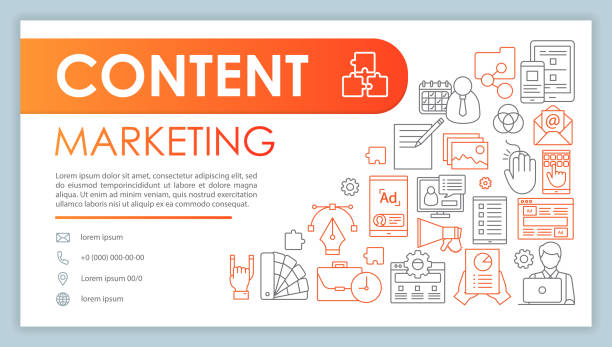Visual content is more important than ever. Whether you are connecting with customers on social media, crafting an engaging email campaign, or creating an impactful blog post, using visuals can significantly improve your chances of success. From grabbing attention to improving brand recall, this article covers why visual content is vital and how it can transform your marketing efforts.
What is Visual Content in Marketing?
Visual content refers to any imagery, videos, graphics, or other visual elements that convey your message. It includes photographs, infographics, charts, videos, GIFs, and even memes. These assets help businesses communicate effectively and resonate with their target audience.
Why is Visual Content Important?
People process visuals 60,000 times faster than text. With our short attention spans, images and videos quickly convey meaning, making them indispensable tools in marketing. Adding it to your campaigns keeps your audience engaged and improves their overall experience.
How Visual Content Grabs Attention
We live in a world flooded with information. Social media feeds, blogs, and websites are packed with content, making it difficult to stand out. This is where visual content comes in.
The Power of First Impressions
When someone visits your page, visuals are the first thing they notice. Bright images, sharp graphics, and compelling videos immediately grab attention. A strong visual element encourages the audience to stop scrolling and interact with your message.
Storytelling Through Images
Using pictures or graphics to tell a story is incredibly effective. Stories told through visuals are more memorable than plain text, allowing businesses to connect emotionally with their customers.
The Role of Visual Content in Building Brand Identity
Establishing Recognition
Consistent visual elements such as logos, colors, and typography help customers identify your brand. When you use uniform visual content, your business becomes easily recognizable.
Strengthening Emotional Connections
Visuals evoke emotions better than words. For instance, a heartfelt video of happy customers can build trust and establish loyalty far better than a simple testimonial.
How Visual Content Improves Engagement Rates
Engagement metrics such as likes, shares, and comments directly affect your marketing performance. It is proven to increase these metrics significantly.

Social Media and Visual Content
Platforms like Instagram and Pinterest thrive on visuals. Posts with compelling graphics or videos generate higher engagement compared to text-only posts.
Videos Dominate Engagement
Short, engaging videos perform exceptionally well across all platforms. They are shareable, easy to understand, and fun to watch, making them ideal for communicating your brand message.
Boosting Website Traffic with Visual Content
Adding visual content to your website does more than just make it look good. It also helps you attract and retain visitors.
Infographics and Educational Graphics
Infographics are an excellent way to present data in an easy-to-digest format. They break down complex information into visuals, keeping readers engaged and informed.
Improved SEO Through Images
Including optimized visuals with descriptive alt text and proper file names improves search rankings. Search engines reward sites with valuable content that includes high-quality visuals.
How Visual Content Enhances Understanding
Not all information is easy to explain with words. Complex ideas can be simplified using it, such as diagrams and flowcharts.
Clearer Communication
Visual aids like tutorials, graphs, and charts help communicate detailed information more effectively. This is especially useful in technical or educational marketing materials.
Appealing to Diverse Audiences
Some audiences prefer visuals over text. By incorporating a mix of content formats, you can cater to varied preferences and expand your reach.

The Psychology Behind Visual Content Success
Human brains are wired to respond to visuals. Here is why visual content has such a powerful impact:
Visual Memory
People remember only 10 percent of what they hear and 20 percent of what they read, but they retain 80 percent of what they see. This makes visuals essential for branding and messaging.
Emotional Responses
Colors, shapes, and imagery all trigger emotional reactions. Marketing campaigns that use emotionally resonant visuals are more likely to succeed.
How to Create Effective Visual Content
Creating effective visual content requires strategy. Simply adding random images or videos will not do the job.
Know Your Audience
Understanding your audience’s preferences is key. Are they drawn to bright, colorful graphics or clean, minimalist designs? Tailoring your visuals to their preferences ensures better engagement.
Use High-Quality Visuals
Blurry images or poorly designed graphics can harm your brand’s credibility. Always invest in high-quality visuals that reflect your brand’s professionalism.
Maintain Consistency
Consistency in colors, fonts, and design styles is essential. It ensures that all your visuals align with your brand identity.
Challenges of Using Visual Content
While it is incredibly effective, it comes with its own set of challenges.
Time and Resources
Producing high-quality visuals requires both time and resources. Hiring designers or creating visuals in-house can be costly.
Staying Original
With so much visual content available, creating something unique can be difficult. Repetitive or copied visuals may not resonate with your audience.
Accessibility Issues
Not everyone can engage with certain types of visuals. For instance, visually impaired users may struggle with image-heavy content unless alternative text is provided.
Future Trends in Visual Content
Interactive Content
Interactive elements like polls, sliders, and clickable infographics are becoming more popular. They invite audiences to engage directly, increasing interaction and retention.
Augmented Reality (AR)
As technology advances, augmented reality is emerging as a powerful tool in visual content. It offers immersive experiences that captivate audiences.
Personalized Visuals
Customizing visuals for individual users or segments can create a more tailored experience. This trend is gaining traction in email marketing and e-commerce.
Why Every Business Needs Visual Content
Visual content is no longer optional. It is an essential component of any successful marketing strategy. Whether you are looking to improve engagement, drive traffic, or build a stronger brand identity, visuals can help you achieve your goals.
By incorporating a variety of images, videos, and graphics into your campaigns, you can connect with your audience in meaningful ways. The benefits of it go beyond aesthetics—it is about making your message unforgettable.
Conclusion
Visual content is not just a trend; it is a necessity. From capturing attention to improving engagement, its impact is undeniable. Businesses that invest in well-thought-out visuals are more likely to connect with their audience and achieve lasting success. Start creating impactful visual content today, and watch your marketing efforts flourish.







